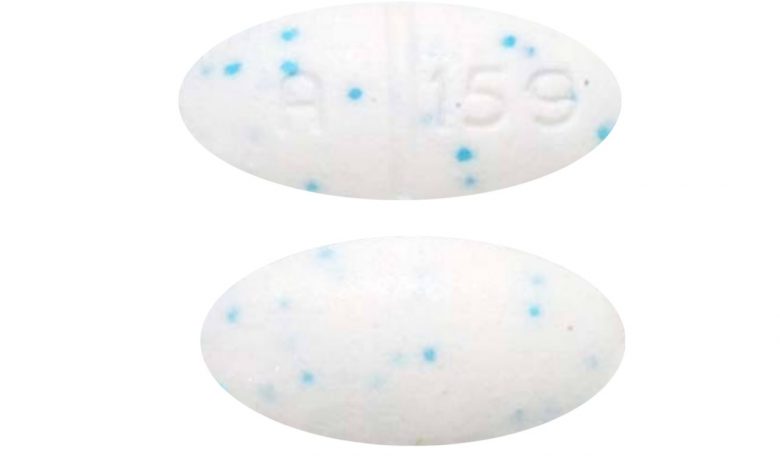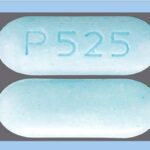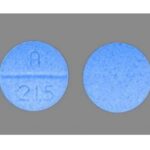What Does The White A 159 Pill With Blue Specs Contain?

The oval white pill with blue specs that carries imprint A 159 has been identified as Phentermine Hydrochloride 37.5 mg, a prescription weight loss medication supplied by Qualitest Pharmaceuticals Inc.
The Food and Drug Administration (FDA) approved it in 1959 for short-term use of up to 12 weeks for people older than 16. In the 1990s, drug makers combined phentermine with other weight loss drugs. This drug combination was commonly called fen-phen.
After reports of significant heart problems in users, the FDA pulled the other two drugs that were used in the treatment — fenfluramine, and dexfenfluramine — from the market.
Today, phentermine can be used on its own and goes by the brand names Adipex-P, Lomaira, and Suprenza. You can also find it in combination medications for weight loss, such as Qsymia, which combines phentermine and another drug called topiramate.
A 159 pill is classified as a Schedule 4 controlled substance under the Controlled Substance Act (CSA).
How should A 159 pill be used?
Phentermine comes as tablets and extended-release capsules. It usually is taken as a single daily dose in the morning or three times a day 30 minutes before meals. Follow the directions on your prescription label carefully, and ask your doctor or pharmacist to explain any part you do not understand. Take phentermine exactly as directed.
Most people take A 159 pill for 3 to 6 weeks; the length of treatment depends on how you respond to the medication. A 159 pill can be habit-forming. Do not take a larger dose, take it more often, or take it for a longer period than your doctor tells you to.
If you are taking the extended-release (long-acting) tablets, do not split, chew, or crush the tablet. There are some tablets that can be crushed and mixed with food.
How does it work?
A 159 pill belongs to a class of drugs called anorectics, also known as appetite suppressants. Taking A 159 pill helps suppress your appetite, thereby limiting how many calories you eat. Over time, this can lead to weight loss.
While the exact way A 159 pill reduces appetite remains unclear, the drug is thought to act by increasing neurotransmitter levels in your brain.
Neurotransmitters — the chemicals norepinephrine, serotonin, and dopamine are — are your body’s chemical messengers. When your levels of these three chemicals increase, your feeling of hunger decreases.
However, you may build a tolerance to the appetite-suppressing effects of phentermine within a few weeks. If that happens, speak with the healthcare professional who prescribed it.
What side effects can A 159 pill cause?
A 159 pill may cause side effects. Tell your doctor if any of these symptoms are severe or do not go away:
• dry mouth
• unpleasant taste
• diarrhea
• constipation
• vomiting
Some side effects can be serious. If you experience any of the following symptoms, call your doctor immediately:
• increased blood pressure
• heart palpitations
• restlessness
• dizziness
• tremor
• insomnia
• shortness of breath
• chest pain
• swelling of the legs and ankles
• difficulty doing exercise that you have been able to do
A 159 pill may cause other side effects. Call your doctor if you have any unusual problems during your treatment with phentermine.
If you experience a serious side effect, you or your doctor may send a report to the Food and Drug Administration’s (FDA) MedWatch Adverse Event Reporting program by phone (1-800-332-1088).
Healthy ways to promote and maintain weight loss
Most often, healthcare professionals prescribe phentermine and topiramate after you’ve tried other lifestyle modifications for weight loss but haven’t seen significant results.
While A 159 pill can be a powerful weight loss aid, the only proven way to shed weight and keep it off in the long term is to engage in healthy lifestyle behaviors.
Without making these habit changes, you may gain back any weight you’ve lost — and possibly more — once you stop taking the A 159 pill.
Instead, it’s best to prioritize healthy, sustainable lifestyle habits that promote health beyond weight loss.
Extensive research has shown that exercise, a nutritious diet, stress management, and proper sleep are crucial to promoting better health and reducing your risk of disease.
What’s more, taking medication long-term is not without risks, and the cost can add up, especially if you don’t have insurance.
For these reasons, a healthcare professional will likely recommend that you make healthy lifestyle changes before recommending a weight loss medication.
Some examples of healthy lifestyle changes you can make include:
• Doing your best to manage your stress levels. Managing stress can help reduce emotional eating and inflammation. You can try strategies such as medication, going for walks, socializing with friends and family, or speaking with a trained professional.
• Eating a reduced-calorie diet. If you have excess weight to lose, you can try to eat 300–500 fewer calories per day. A registered dietitian can help you tailor this range based on your preferences and goals.
• Getting more sleep. Though individual needs vary, try to get 7–9 hours of sleep per night.
• Increasing physical activity. The U.S. Department of Health and Human Services recommends getting a minimum of 150 minutes per week of moderate aerobic exercise such as brisk walking or running.
• Prioritizing nutrient-dense foods. Nutrient-dense foods such as fruits and vegetables are relatively low in calories and high in nutrients such as fiber, vitamins, and minerals.
• Trying behavioral strategies. Behavior changes that may be helpful include self-monitoring your food intake, physical activity, and weight and making adjustments as needed.
These lifestyle changes can be difficult to make, and you don’t have to do them all at once. Instead, slowly incorporate new healthy behaviors over time. This will help promote long-term, sustainable results.





